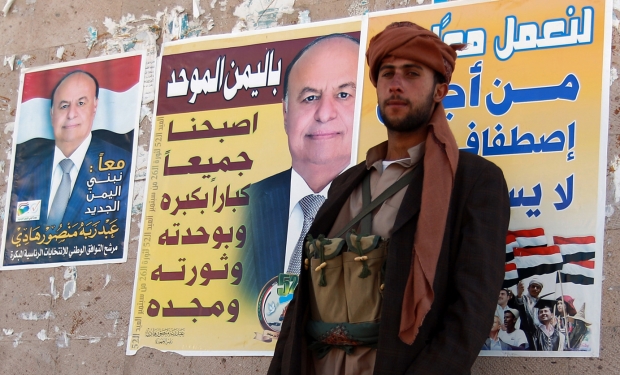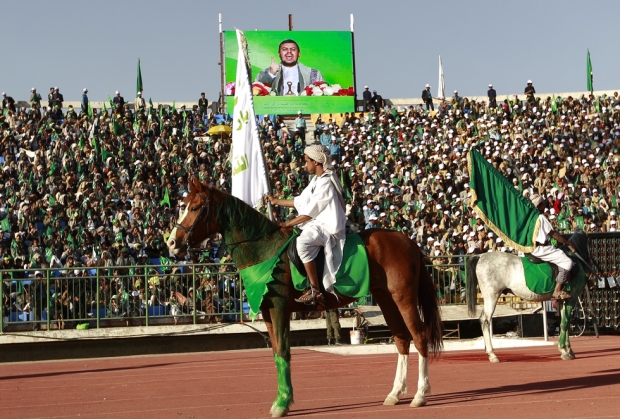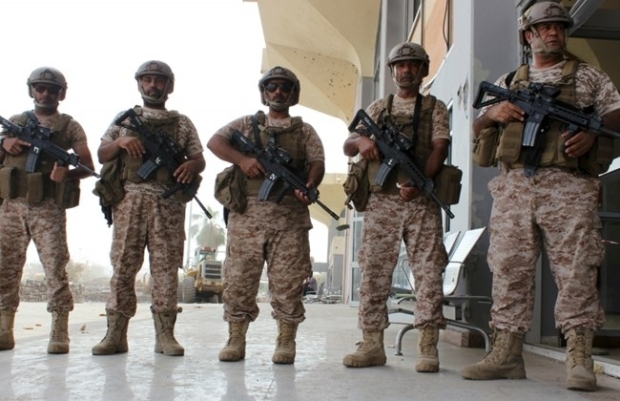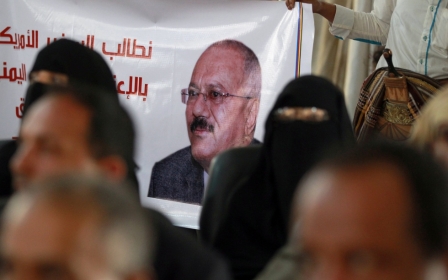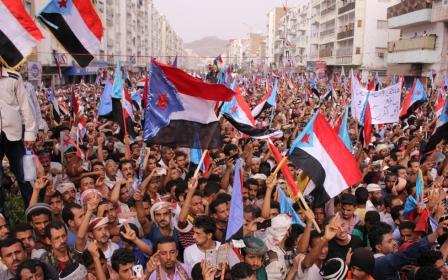ANALYSIS: Back with a vengeance? Saleh lining up Yemen return
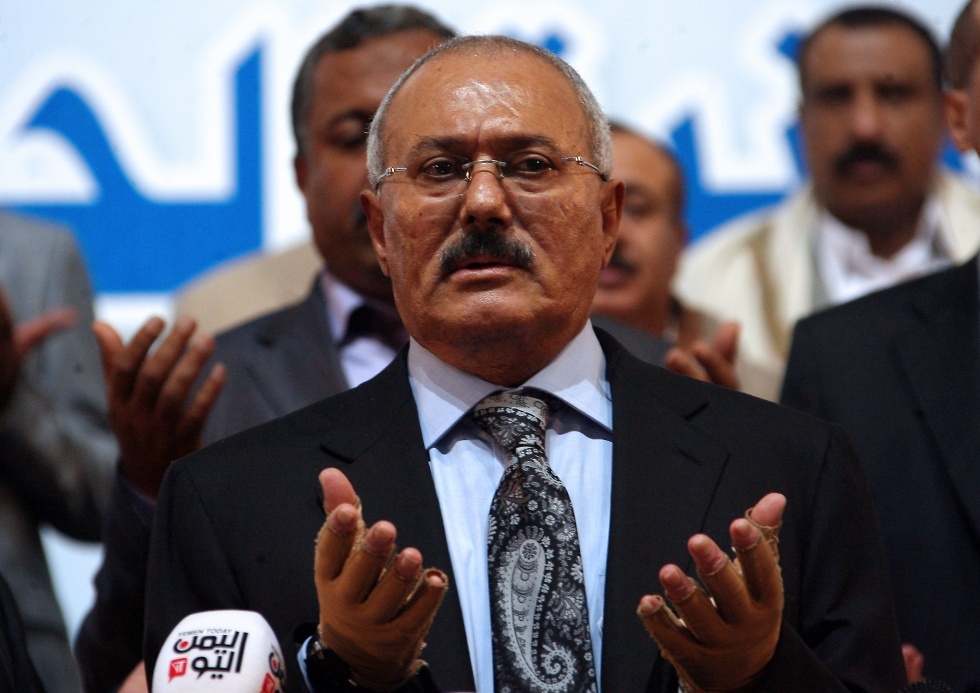
His downfall was the harbinger of a war that has killed 10,000, sparked a cholera epidemic and left millions more facing starvation. But unlike many of his former subjects, the fortunes of Ali Abdullah Saleh, Yemen's hated former president, could be on the up.
According to reports, Saudi Arabia, at the behest of the UAE, is considering dumping the current elected head of state, Abd Rabbuh Hadi, and switching to Saleh in an attempt to end the war it entered to ostensibly protect Hadi from the lightning advance of the Iranian-backed Houthi movement.
Saleh did not disappear after his 2011 downfall during Yemen's "Arab Spring". His loyalists in the military sided with the Houthis - a masterstroke of political survival given the bitter wars they had fought against the movement while in power.
Such a Saudi decision, analysts say, would be as confused as the war itself, where loyalties shift by the day, former allies turn on each other and enemies make up behind the scenes. And, if correct, there would be huge implications for the future of not only the Arab world's poorest country, but also for those seeking to steer its course.
According to a report on Intelligence Online, a French website, Ahmed al-Assiri, a Saudi spymaster and the right-hand man of Saudi crown prince, Mohammed bin Salman (MbS), travelled to Abu Dhabi late last month to meet Ahmed Saleh, the son of the former president and once Yemen's ambassador to the UAE.
The visit reportedly involved negotiations about the formation of a new Yemeni government with either Saleh himself, his son, or a trusted lieutenant at its head.
According to the report, since the appointment of MbS last month, Riyadh has been more open to the idea of "a return to power of the former Yemeni president".
The French report suggested the Gulf states were considering the former Yemeni prime minister, Khaled Bahah, sacked by Hadi last year, as his replacement.
Middle East Eye reported in June that MbS was told by the UAE that he should ditch the enfeebled Hadi, who still lives in exile in Riyadh, in preference for Bahah.
"If these reports are true, such a settlement will not solve Yemen's problems nor address the main causes behind the war, which lie in the fact that power is concentrated in the northern elite represented by Saleh, his family and patronage networks," said Dawsari, a senior non-resident fellow at the Project on Middle East Democracy.
"Bringing in his son [Ahmed Saleh], or anyone else from Saleh's camp, as the next key figure will only fuel the grievances that led to the war."
It was unlikely the majority of Yemenis would accept such a move either, she added.
While Yemen expert Baraa Shiban doubted the credibility of the reports, he believed there had been "a clear attempt" by the UAE and some elements within the Saudi government and intelligence "to attract and convince groups within Saleh's party to join their camp".
Shiban, a human rights activist, said however he believed it was unlikely that Saudi Arabia would be tempted to support such a plan or that the Saudi spymaster Assiri would have met with Ahmed Saleh.
According to Shiban, although there has been increasing tension between Hadi and the UAE, it was unlikely that the Gulf powers would be looking to replace him at the moment.
"There is a feeling in the region and internationally that Hadi may not be fit as a leader for the country, but no one is ready to replace him," Shiban told MEE.
Shiban said the reports were complicated by the fact Saleh's son was sanctioned by the UN in April 2015 as a result of Saudi pressure on the UN Security Council do so.
He said the plan would harm Saudi relations in Yemen and also its wider security interests.
"The relationship between Saudi Arabia and the Yemeni groups are tribal relations that have been developed over a long period of time," he said.
"It is unlikely that Riyadh will suddenly switch alliances and dismiss its relations with the many Yemeni tribes that have opposed Saleh.
"Furthermore, such a plan could lead to the separation of Yemen which could lead to the creation of a very hostile north that can be easily manipulated by Iran."
Friction at court
Reports of increasing friction between the UAE and Hadi have built a head of steam in recent months, and threaten to explode.
In May, Middle East Eye revealed that Hadi accused Mohammed bin Zayed, the crown prince of Abu Dhabi, who has taken a lead in the Yemen campaign, of behaving like an occupier rather than its liberator.
Hadi responded by sacking two men close to the Emiratis: Aden's governor Aidarus al-Zubaidi, and Hani Ali bin Braik, a minister of state and general commander of the forces of the Security Belt, run by the UAE.
During the same week, Dhahi Khalfan Tamim, Dubai's former head of security, said on Twitter that "replacing Hadi is a Gulf, Arab and international demand".
'Their plan was to bomb Houthis to submission and that clearly didn't work'
- Nadwa al-Dawsari
The feud between the two sides has threatened to split the Saudi-led alliance of forces that is fighting the Houthis in Yemen.
The Saudi-backed campaign has now lasted two years and the Houthi rebels show no signs of being dislodged from the capital Sanaa.
Dawsari believes that these reports would suggest that Saudi Arabia's strategy in Yemen is in further disarray.
"Their (Saudi's) plan was to bomb Houthis to submission and that clearly didn't work. The two-year campaign is a failure. Houthis were not defeated and they are stronger, the country is disintegrating, and Yemen is the world's worst humanitarian crisis."
Some 10,000 people have died and more than 40,000 have been injured in the campaign.
But for Saleh, such a prospect might be his only chance to regain some kind of power in Yemen.
"This agreement, if it exists, brings Saleh back to power directly or indirectly with blessings from the very people who pressed him to step down," said Dawsari.
Shifting alliances
The Houthis have been allied with Saleh since 2014 and declared their National Salvation Government, with a parliament known as the Supreme Political Council, at the end of last year.
But disputes were expected, due to the nature of the parties' alliance, which many observers see as "a marriage of inconvenience", according to Dawsari, or enemies united by war and divided over politics, with the Houthis fighting numerous civil wars against Saleh when he was in power.
Tensions between Saleh and the Houthis broke out when the latter attempted to expand their influence into Saleh’s regions through tribes supporting him or through army camps.
Although it is unclear from the reports what the implications of this prospective plan would be on the Houthis, analysts believe that it might lead to an end of the Houthi-Saleh alliance.
"What unified them (Saleh and the Houthis) in 2014 was revenge against their common enemies," explained Dawsari, who believes that their alliance will end at some point.
"Beyond that, they are enemies of one another and already the rift between the two is growing by the day."
Middle East Eye propose une couverture et une analyse indépendantes et incomparables du Moyen-Orient, de l’Afrique du Nord et d’autres régions du monde. Pour en savoir plus sur la reprise de ce contenu et les frais qui s’appliquent, veuillez remplir ce formulaire [en anglais]. Pour en savoir plus sur MEE, cliquez ici [en anglais].


